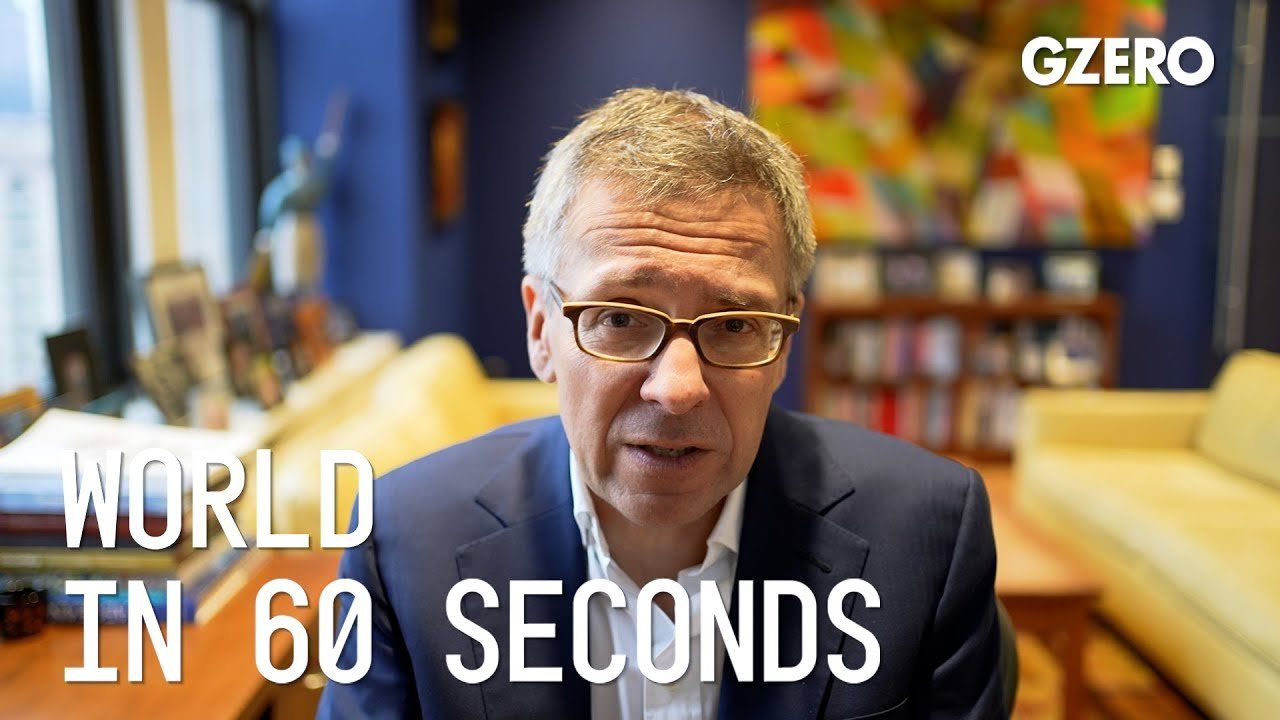Ian Bremmer shares his insights on global politics this week on World In :60.
How big of a deal is Russia pulling out of New START?
Well, this is of course is the nuclear agreement that the Americans and others have already been accusing the Russians not of being in compliance with. The nature, of course, of the US-Russia relationship right now is completely broken. There's no high level engagement or diplomacy. It is notable that Putin said in his annual State of the Union speech, the one that he essentially canceled last year, that he is suspending Russian participation in START, but not withdrawing. I don't think it's a nothingburger. I think it matters because generally nuclear temperatures have been going up over the past months, but this is not a particularly large issue.
Is China's potential support of Russia in Ukraine a "red line" for the West?
Yes, this is a much bigger issue. We are talking about a peace deal that the Chinese are saying that they're going to announce in short order. President Xi planning a big speech on February 24th, which is the one-year anniversary of the Russian invasion. That's unprecedented for China to suddenly be taking a leadership role, a public leadership role, on an issue that is not of primary national security concern to the Chinese self.
It's not Taiwan, not South China Sea. It's not their backyard. It's between two major combatants, the Russians, the Ukrainians, the Americans, and NATO, of course, being involved by proxy. I think it's a very big deal. If the Chinese were not just to go ahead with their peace deal, which will be seen as performative and won't get any traction from NATO or from Ukraine, but actually do provide weapons to the Russians, we will see secondary sanctions from the West. And the Europeans will not like that, so it could put a lot of pressure on the coalition's unity. We'll see pressure to escalate the weapon systems that the West is putting in place. We'll also see real challenges in US-China relations directly. Secondary sanctions against the Chinese from the US is almost certain, as I said.
Turkey is still facing humanitarian crisis as aftershocks continue to hit the region, are they receiving enough aid?
Another six Turks dead from new aftershocks just in the past hours. They said they need $1.4 billion in immediate support. Total amount committed so far looks to be less than 20% of that. Been a big outpouring internationally, lots of countries participating. That certainly helps in terms of Turkey's geopolitical position. But in terms of helping the people on the ground and quick reconstruction, making the rescue effort works, no, it's not where it should be and that's unfortunate. And almost 50,000 Turks already known to be dead from that devastating, devastating earthquake. The pictures, the videos, have just been absolutely horrifying.
- Can China lead on Russia/Ukraine peace? ›
- China’s place in the war in Ukraine ›
- What We’re Watching: Putin blames the West, China in Ukraine war, Sunak close to Northern Ireland deal ›
- Hard Numbers: Another quake in Turkey, debt interest payments up ... ›
- One year in: Ukraine war will last as long as Putin is in power - GZERO Media ›
- NATO unity & how to end war in Ukraine - GZERO Media ›
- Russian Black Sea Fleet commander still alive despite Ukraine's claims - GZERO Media ›
More For You
In this Quick Take, Ian Bremmer addresses the killing of Alex Pretti at a protest in Minneapolis, calling it “a tipping point” in America’s increasingly volatile politics.
Most Popular
Who decides the boundaries for artificial intelligence, and how do governments ensure public trust? Speaking at the 2026 World Economic Forum in Davos, Arancha González Laya, Dean of the Paris School of International Affairs and former Foreign Minister of Spain, emphasized the importance of clear regulations to maintain trust in technology.
Will AI change the balance of power in the world? At the 2026 World Economic Forum in Davos, Ian Bremmer addresses how artificial intelligence could redefine global politics, human behavior, and societal stability.
Ian Bremmer sits down with Finland’s President Alexander Stubb and the IMF’s Kristalina Georgieva on the sidelines of the World Economic Forum to discuss President Trump’s Greenland threats, the state of the global economy, and the future of the transatlantic relationship.
